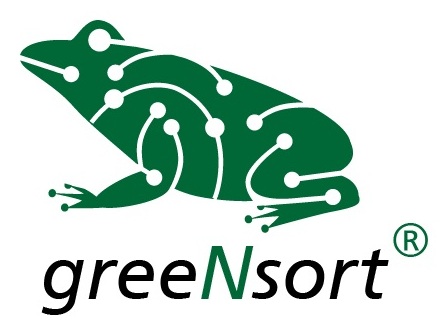Economics of greeNsort®
There is no climate protection project more efficient than greeNsort®: rolling out savings up to 51.3 TWh/year and 30.3 MtCO2e/year1 worth 7.1 Billion EUR/year has almost zero cost and with completed R&D it is risk-free
The most economic project
The economy, stupid — James Carville
- the cost of 1 MWh is calculated with 32 Euro (taken summer 2019 from Leipzig Electricity Stock Exchange)
- the cost of 1 tCO2e is estimated at 180 Euro (taken summer 2019 from the German Government)
- every climate protection project with costs less than 180 Euro / tCO2e is rational
- usually the cost of roll-out enables business models — such as producing and selling more efficient heating systems
- there are multiple sponsoring opportunities for climate startups with a business model (for-profit)
has no business model
The market is a mechanism for sorting the efficient from the inefficient, it is not a substitute for responsibility — Charles Handy
- the roll-out of more efficient software algorithms costs nothing2
- a project with 0 Euro roll-out cost / tCO2e does not enable a business model3
- from the perspective of a rational decision maker: a project with 0 Euro roll-out cost / tCO2e is optimal
- from the perspective of start-up funding: no business plan — no start-up funding
and has no risk
I like to do high-risk and high-payoff kind of research — Susan Lindquist
- research by definition carries the risk of failure
- successfully completed R&D has no risk anymore
- from the perspective of a rational decision maker: a project with removed risk is optimal
- from the perspective of research funding: no risk — no funding
it generates public and private value
There are systematic barriers for German non-profit foundations to fund the development of technologies — Lars Grotewold4
- charitable foundations are obliged to fund only projects that are purely non-profit5
- clean-tech provides economic value to society and private companies
- from the perspective of a rational decision maker: a project that benefits companies and citizens and the environment is optimal
- from the perspective of charitable foundations: private value — no funding
and hence lacks funding
Climate policy is a field mined by interests — Lars Grotewold6
- research funding is usually limited to established institutions for future research with uncertain results
- start-up funding is usually limited to - less economic - for-profit enterprises with a business model
- charitable funding is usually limited to - less economic - non-profit-only projects
- these established funding models absorb a huge fraction of climate funding
Financing through patenting
The good patent gives the world something it did not truly have before, whereas the bad patent has the effect of trying to take away from the world something which it effectively already had — Giles Sutherland Rich7
Patents should provide incentives for economically efficient R&D
- indeed, big cloud-providers would benefit from greeNsort® electricity savings (incentive to license the private part of the value)
- but cloud-providers do not pay the Greenhouse Gas bill (no incentive to license the public part of the value)
- but software-producers do not pay the electricity bill of using their software (no incentive to license)
- but data-centers cannot choose which software to run (no opportunity to license)
- but Small and Medium-sized Enterprises (SMEs) cannot choose which software to run (no opportunity to license)
- but Citizens (and companies) tend to use open-source software (no opportunity to license)
has negative impact on the public
The last thing the public want at this point is a patent holder holding out his test, vaccine, or cure — Dr. Kalyan C. Kankanala
- patenting would delay time-to-market by two years (savings of 60 MtCO2e lost)
- patenting would limit the savings to a fraction of software and a fraction of companies (most of the savings of 30 MtCO2e / year lost)
- patenting would take away savings from open-source software, from Small and Medium-sized Enterprises (SMEs) and from citizens (most of the savings of 51 TWh/year would be lost)
- patenting would destroy part of the private and all of the public value (most of 7.1 Billion EUR/year lost)
Software is like sex: It’s better when it’s free ― Linus Torvalds—
Estimation of MtCO2e = 0.59* TWh taken from forecasting model of the Lean ICT Report March 2019↩︎
except the R&D and publishing costs (~1000 man-days) and costs for implementing the algorithms in libraries of popular programming languages (not estimated)↩︎
“I recognized that information was, in many respects, like a public good, and it was this insight that made it clear to me that it was unlikely that the private market would provide efficient resource allocations whenever information was endogenous” — Joseph Stiglitz↩︎
Stiftung Mercator, oral communication↩︎
at least in Germany they would risk loosing their non-profit status↩︎
Stiftung Mercator Interview with Dr. Lars Grotewold↩︎
US judge, 1978 60 JPOS 271,288, cited in CIPA Guide to the Patents Act, page 83 and Gaster/Marlow, CRi 1/2009 pages 3-4↩︎
Copyright © 2010 - 2024 Dr. Jens Oehlschlägel - All rights reserved - Terms - Privacy - Impressum
